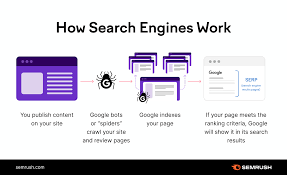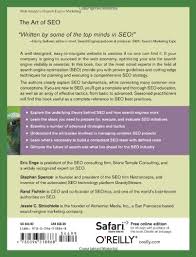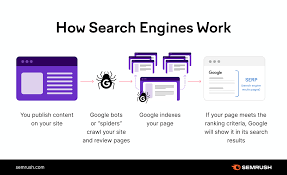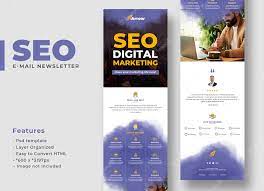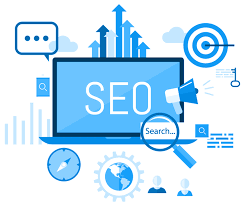Unlocking Success: Mastering the Art of Search Engine Ranking Keywords
The Importance of Search Engine Ranking Keywords in Digital Marketing
Keywords play a crucial role in determining the success of any digital marketing strategy, particularly when it comes to search engine ranking. Understanding how search engine ranking keywords work is essential for businesses looking to improve their online visibility and attract more organic traffic to their websites.
What are Search Engine Ranking Keywords?
Search engine ranking keywords are specific words or phrases that users type into search engines when looking for information, products, or services online. These keywords are fundamental to SEO (Search Engine Optimization) as they help search engines understand the content of web pages and match them with relevant search queries.
How Do Keywords Impact Search Engine Ranking?
When a user enters a keyword into a search engine like Google, the search engine’s algorithm scans through millions of web pages to find the most relevant results. Websites that have optimised their content with the right keywords have a higher chance of appearing at the top of search engine results pages (SERPs).
Choosing the Right Keywords
Selecting the right keywords for your website involves thorough research and analysis. It’s essential to consider factors such as search volume, competition level, and relevance to your business niche. Long-tail keywords (phrases containing three or more words) are often less competitive and can attract more targeted traffic to your site.
Optimising Content with Keywords
Once you’ve identified your target keywords, it’s crucial to strategically incorporate them into your website content. This includes meta tags, headings, body text, image alt text, and URLs. However, it’s essential to maintain a natural flow of language and avoid keyword stuffing, which can harm your site’s credibility with both users and search engines.
Monitoring and Adjusting Keyword Strategy
SEO is an ongoing process that requires constant monitoring and adjustment. Regularly tracking your keyword rankings and analysing user behaviour can help you refine your keyword strategy over time. By staying up-to-date with industry trends and algorithm changes, you can adapt your keyword approach to maintain or improve your search engine ranking.
In Conclusion
In conclusion, search engine ranking keywords are integral to the success of any digital marketing campaign. By understanding how keywords impact SEO performance and implementing a strategic approach to keyword research and optimisation, businesses can significantly enhance their online visibility and attract valuable organic traffic to their websites.
Top 6 Tips for Improving Your Search Engine Rankings with Effective Keyword Strategies
- 1. Conduct thorough keyword research to identify relevant and high-traffic keywords.
- 2. Include target keywords naturally in your website content, meta tags, and headers.
- 3. Create high-quality and engaging content that is valuable to your audience.
- 4. Optimise your website for mobile devices to improve user experience and search engine rankings.
- 5. Build quality backlinks from reputable websites to boost your site’s authority.
- 6. Regularly monitor and analyse your keyword rankings to make necessary adjustments.
1. Conduct thorough keyword research to identify relevant and high-traffic keywords.
To improve your search engine ranking, it is essential to conduct thorough keyword research to identify relevant and high-traffic keywords. By understanding the specific words and phrases that your target audience is searching for, you can optimise your website content to align with their search intent. Choosing the right keywords with a balance of relevance and search volume can significantly enhance your online visibility and attract more organic traffic to your site. Effective keyword research lays the foundation for a successful SEO strategy that can help you reach a wider audience and increase your website’s chances of ranking higher in search engine results pages.
2. Include target keywords naturally in your website content, meta tags, and headers.
To improve your search engine ranking, it is essential to include target keywords naturally throughout your website content, meta tags, and headers. By strategically integrating relevant keywords into your content in a natural and seamless manner, you can signal to search engines the relevance of your web pages to specific search queries. Meta tags and headers provide additional opportunities to reinforce the importance of these keywords, helping search engines better understand and index your content for improved visibility in search results. Remember, the key is to maintain a balance between optimising for keywords and providing valuable, engaging content for your audience.
3. Create high-quality and engaging content that is valuable to your audience.
Creating high-quality and engaging content that provides value to your audience is a crucial aspect of improving search engine ranking with keywords. Search engines like Google prioritise websites that offer relevant and informative content to users. By crafting content that resonates with your target audience, you not only enhance user experience but also increase the likelihood of your website ranking higher in search results. Focus on addressing the needs and interests of your audience through well-researched, compelling content that incorporates relevant keywords naturally. This approach not only boosts your SEO performance but also establishes credibility and trust with both search engines and users.
4. Optimise your website for mobile devices to improve user experience and search engine rankings.
Optimising your website for mobile devices is a crucial step in improving both user experience and search engine rankings. With the increasing number of users accessing the internet via smartphones and tablets, ensuring that your site is mobile-friendly is essential to cater to this growing audience. Search engines like Google prioritise mobile-responsive websites in their rankings, as they provide a better user experience for mobile users. By optimising your website for mobile devices, you not only enhance usability but also signal to search engines that your site is up-to-date and user-friendly, ultimately boosting your chances of ranking higher in search results.
5. Build quality backlinks from reputable websites to boost your site’s authority.
To enhance your search engine ranking, it is crucial to build quality backlinks from reputable websites. Backlinks act as a vote of confidence for your site’s credibility and authority in the eyes of search engines. By obtaining links from trustworthy sources, you not only improve your site’s visibility but also establish a strong digital footprint that can positively impact your overall SEO performance. Focus on acquiring backlinks from relevant and authoritative sites within your industry to boost your site’s authority and climb higher in search engine results pages.
6. Regularly monitor and analyse your keyword rankings to make necessary adjustments.
Regularly monitoring and analysing your keyword rankings is a critical aspect of maintaining a successful search engine ranking strategy. By keeping a close eye on how your chosen keywords are performing in search results, you can identify trends, track progress, and pinpoint areas for improvement. This data-driven approach allows you to make necessary adjustments to your keyword strategy, such as refining target keywords, updating content, or adapting to algorithm changes. By staying proactive and responsive to shifts in keyword rankings, you can ensure that your website continues to rank well and attract valuable organic traffic over time.
